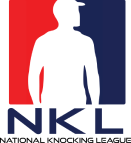Speaker 1: (00:02)
Bill, Can I help you?
Speaker2: Hey listen up, I’m bringing you the best content to ever exist in the door to door industry from sales leadership, recruiting, impersonal development.
Speaker 1:
Why would I need that?
Speaker 2:
Because never before have we been able to collaborate with the top experts in their industries, sharing their secrets and techniques and what makes them the best.
Speaker 1: Wait, who? Who are you?
Speaker 2:
I’m your host. Sam Taggart, creator of the D2D experts in D2Dcon. Is there a place we can sit down?
Speaker 1:
We’ll come on him.
Speaker 3: Register today for D2DCon, learn from over 40 amazing speakers including the real wolf of Wall Street Jordan Belfort. Come as a team. Learn as a team. Leave as a tribe.
Speaker 2: (00:48)
Hey Everybody. This is Sam Taggart, your host with the D2D podcast.
Speaker 1: (00:02)
Bill, Can I help you?
Speaker2: Hey listen up, I’m bringing you the best content to ever exist in the door to door industry from sales leadership, recruiting, impersonal development.
Speaker 1:
Why would I need that?
Speaker 2:
Because never before have we been able to collaborate with the top experts in their industries, sharing their secrets and techniques and what makes them the best.
Speaker 1: Wait, who? Who are you?
Speaker 2:
I’m your host. Sam Taggart, creator of the D2D experts in D2Dcon. Is there a place we can sit down?
Speaker 1:
We’ll come on him.
Speaker 3: Register today for D2DCon, learn from over 40 amazing speakers including the real wolf of Wall Street Jordan Belfort. Come as a team. Learn as a team. Leave as a tribe.
Speaker 2: (00:48)
Hey Everybody. This is Sam Taggart, your host with the D2D podcast. And I’m here with Tim Aspen and he is one of the founders of Aspen contracting and has been, you know, this is one of the staples, one of the first and largest roofing contractors nationwide. Yeah. You know, there’s, and anybody that’s listening to this, I’d been in helping the roofing space for a while doing consulting and speaking and what not. And every time I meet a roofing contractor I met, I’m like, oh, so how big are you? You know, how many sales do is do you guys have? And the most common answer is five to 10 sales guys put forward a 10 million in that range, right? Most people are in that space where Tim was able to break through that barrier, big time and ran nine years consecutive over a hundred million dollar roofing contractor company, which is massive. And I feel humbled to meet you and be on the show with you, but two were in a hotel room.
Speaker 1: (01:50)
So that’s means it’s going to be a good one. So welcome to the show, man. Thank you. Thanks for having me. Yeah, so I’m super stoked. So, uh, first off we’re going to be talking, if you’re listening to this, and this will pertain to you and it keep listening to this. If you’re somebody that’s one trying to run a company and scale and grow because, or you’re maybe stuck at recruiting the same amount of people in this turnover in the cycle of how do you develop your guys, how do you scale, how do you duplicate, uh, because there’s very, very, very few companies that have been able to accomplish what you guys have. Yeah. And to, so how to do that. And then two, how to take your, you know, you were telling me before this kind of that $300,000 sales dude and turn them into the 650 and a million dollar earners because that’s where the money’s at, right? Yeah, yeah, yeah, definitely. So that’s kind of the main focus. We’re just kind of setting the frame. Uh, so let’s kind of dive into this. So tell me how you got started. You know, briefly just kind of go into like you were, how old? I was a 17 at the time and uh, uh, high school dropout
Speaker 3: (03:00)
was actually a graduate high school. No, it ain’t graduate high school. I was actually, uh, in juvenile detention for quite a while before. And, uh, yeah, it was one of the, uh, you know, by luck of the draw when I was, I was released from their Hurricane Charlie, it hit Florida and my brother is in the roofing business and started doing pretty good and uh, you know, is matter within days how things kind of work out and uh, jumped on a plane and went to Florida and never looked back. So that’s awesome. Yeah. Just, hey, I don’t need a high school or college. Yeah. I learned very quickly. Yeah. Yeah. I didn’t intentionally, it worked out that way, thankfully for me. And, uh, I had a very young age, got to experienced, uh, you know, some great business people and, you know, walk, walking in and seeing how a massive operation works and uh, you know, and Hurricane Charlie and Wellman, all of that, whatever years those were, I can’t even remember anymore. Oh, three Oh four, somewhere in that range. And uh, it was a pretty cool experience as a 17 year old kid looking around and seeing all that going on. So you’re 17, how do you sell somebody a $20,000 roof? Is that, I mean, did they take you serious? Are you, I mean, and still have kind of a baby. So I had a real baby.
Speaker 3: (04:14)
You still 17. Yeah, I had a real, real baby faces then and I knew that was a huge disadvantage. I have, you know, these are grown men I’m competing with. And so I had to study, I had to learn, I learned a lot about roofing. I actually first started, I was doing inspections and, um, I, I can’t, I’m not the manual labor type. I shouldn’t be doing any physical labor, but I actually learned how a roof gets put on, like actually did it, some of the work and repairs and that led to being around great salespeople are kind of the pioneers of this business and learning from them firsthand. So, I mean, by the time I had a rough couple of years, but by the time I was 18 maybe turning 19 I was, I was kind of the killer by then, so that’s awesome. Yeah. Yeah. I started super young and you know, it’s Kinda like one of those things I say it was my competitive edge. It’s just like I fell into it way earlier where a lot of people that got into door to door or whatever, probably in their 25 or 24, you know what I mean? Yeah. I came into it late and I’m like, dude, I already been doing for six years. Right.
Speaker 3: (05:18)
Let me show you the dinner too. Yeah, yeah. That’s awesome. So who were some of those mentors as you said, like, Hey, I was able to learn from some of these pioneers? Like is there anyone that stands out? I mean, the, the couple of them I would say, uh, you know, two of my brothers putting us back LC and aspect Marty, hey, um, it was kind of like, who is the godfather of the roofing industry? Um, man, there’s countless others down in, down in Florida for that storm that David Washington’s Damien agents. I mean, yeah, I mean those are who you see today in the roofing business. Um, a lot of them are, are still are some of those bigger companies and it’s cool to see as a, you know, 14 years later, you know, those guys are still doing it successful. It was just to see the, the leadership and the kind of that tree grow out of all of these different roofing companies and how that spawned to other bringing other people in the businesses.
Speaker 3: (06:16)
Kind of cool when you step back and take a look at all of the different players now and see where a lot of them came from. Cool. So tell me Kinda, how did you decide to say, hey, let’s start a roofing company and what was it, anything like you imagined when you were like, Hey, I’m going to start this hundred million dollar company. So, so it was my, my brother had this crazy idea and it was, uh, I’d say at the time it was, I have a dream speech as I like to call it, cause he came in and he’s, you know, he’s telling us of this vision of this roofing company that’s going to be a nationwide roofing company, which nobody did at the time. That’s what I’m trying to inspire roofing companies right now to do it. I’m like, why aren’t you in multiple states and multiples offices?
Speaker 3: (06:58)
Like Yay. And people were, but they were doing sets at the time. They were buying out a local company. And we’re like, Whoa, where am be upfront and honest and tell people where we, where we’re from and what we came to do. And I’m like, we can’t tell somebody boy from Kansas City, Missouri and show up and Columbus, Ohio and start selling roofs like maniacs. You’re crazy. Like we all thought he was great. We were like, oh, that sounds kinda good. Which sounds very simple now, but at the time nobody was doing it and on a scale. But you know, one thing I give him immense credit for is he had the vision to know not only that model it, it could lead to the planning and preparation that was needed. So being able to have a nationwide roofing company with all the licensing, with the same marketing material, with the same phone numbers, all that thing that allow us to be quicker, faster and get to the storms and start knocking doors before anybody cause in the roofing business first one to build wins has always been the rules for 30 years.
Speaker 3: (07:53)
Going back to you can try and reinvent the wheel, but the first one to build out a storm wins because you’re able to get to that next customer, that next customer the quickest. And uh, that, that is what really catapulted us is that planning and able to show up and start, start getting down in the streets systems, which we’re going to talk about. Yeah. Tell you can’t just be like, oh, where are we going? What are we do? Get out there guys, throw them out to the walls. Because I think that’s what a lot of people in door to door do is they expect their salespeople to just like be the business side of things because people are just one track minded like this. Here’s your path, stay on your path, go crank. And if you try to add like the ops and the complexities of scaling to their plate, you end up losing production and right.
Speaker 3: (08:40)
Yeah, yeah. As the, as much, you know, I call it organized chaos in the roofing business. As much chaos as you can plan for and the unknown, the where the sales guys don’t have to worry about if they’re, I’m contracts trifolds how the numbers work. Are we going to have materials or samples there? If they can hit the ground running as soon as possible without thinking they’re obviously going to sell more jobs. Especially, you know, at that time we were able to beat the competition to the streets by days or weeks at that time, which you know, in door knocking in the roofing industry, if you had nobody today at a storm for a week and you’re out knocking doors with 20 or 30 sales guys, you’re going to be killing that storm. That’s where you make your money yet. And so, you know, those systems that everything had a system, everything had a system, everybody had a role show up, you know, and if something wasn’t right, we had handled, get out in the streets and so I would just get out in the streets and sell. That was really the culture that we pushed there.
Speaker 1: (09:33)
That’s cool. So let’s Kinda, Oh, before we dive into systems, because that’s where I want to take this. I have a couple of other questions. So what were some of the bigger hurdles early on that you weren’t expecting, that were kind of these roadblocks of like, I don’t know, are there any major like roadblock that you ran into her at crossroads where you’re like, fetch, like we’re in a pickle or that you can think back to?
Speaker 3: (09:56)
Man? I’d probably say it was a little bit later on. It was definitely my most trying to experience. It was, uh, probably about 2009 in Philadelphia. We had went in there and, uh, the town, uh, upper Darby and lanes down and we had went there and we buy Paskin solicitors permits. We figured we’d just knocked some doors a couple of days as we did the paperwork. You know, we’re excited. We got there and, uh, you know, a town that’s been around since the inception of America, they weren’t very impressed with us at that, at that time. These out of towners coming in and selling jobs like crazy. So, um, the police started walking our yard signs that we had out. We couldn’t knock yard signs, they wouldn’t give us any solicitors permits. Um, the cops took it to the point that they were walking our yard signs and telling customers we were taking people’s down payments and not to trust us.
Speaker 3: (10:44)
So which we had never taken a down payment in the business at all. I’m having to meet with the police chief every day and we’re kind of going through this process and, but my guys are still, they can’t knock doors but they are living in the streets. They’re networking, they’re walking their dogs there at the gas stations and the cops are pissed at this point. We’re not knocking. We’re out walking the dog and that was, I mean we had 12 guys there. We got there in like late July, maybe early July. And by, by the time one hit we did 14, $15 million in business with 12 guys, which all of that stacked up against us. And I mean the houses were crazy. We were working on there like nine, 10 layers of roofing are built in the 19 hundreds and you know, there is a time where, you know, we’re all sitting around looking at each other like you have a lot invested when you go put this amount of people in this amount of the business effort behind it and you’re looking and you’re like, man, all the chat, it felt like it wasn’t, it wasn’t fair, but what are you end do?
Speaker 3: (11:41)
Are you going to roll over and die or play? Play? The victim is okay, we’re going to have to man up and as a team we’re going to have to attack this together. And that’s probably the coolest story I have about uh, the business watching that, that group of, of salespeople and managers and everybody who is involved with that just kind of all buy in. Like it was also, again, some world, but then our customers were all on our side. Like they were calling the police stations and hey, this is fair. These guys at Aspen are good people. Like we have their back to eventually where they let up on us. We still could’ve knocked tours, but it really didn’t matter at that point. Cause the water. Yeah, the customer and the word of mouth was just, just spread so much to the words. It was cool.
Speaker 3: (12:23)
I mean $14 million with 12 guys in four and a half months is, is not a bad deal, especially with all those odds stacked against you, so that’s cool. But there’s some going to go send there. It’s like, I think a lot of people, like you said, go and full at that point. Yeah. And they say freak like, let’s move to a new town. Let’s go here. Or let’s, you know, I don’t know. I just, I feel like so many people are so weak minded in this space sometimes that it’s like, just figure it out. Yeah. You know what I mean? Figure it out. Yeah. You’re here. You’re committed. That’s one of the things you know about door knocking and that whole mentality of it is, you know, you, you know, I used to tell the guys before there was technology, we had a piece of paper where we called our door knocking trackers.
Speaker 3: (13:09)
I get paid a lot of money to get told no. Because you really only need one. Yes. At the end of the day. So it takes a different mentality to do, you know, to get beat down to, to be told constantly 99 times a day. No, no, I don’t want you, I don’t need Ya. But you really only need that one sale. So it does kind of almost create this, this survival of the fittest almost out in the field when you’re, when you’re door knocking on your door knocking organization. Well that’s what I call us, the tribe. I mean it’s like we have a tribe. There are certain people that we
Speaker 1: (13:41)
kick out of. Yeah. Yeah. It’s like this tribe of people that are the survival of the fittest that can take this, this heat from the public that tell him no a million times and can last and get that one. Yes. Like I think that’s what makes us such a unique organization as a, as a culture, as a, as, as DDD tribe. And that’s what’s so cool is I think we can relate to each other on those days where it’s like, dude, I just got my face kicked in. Yes. Really good. It’s hot out like I’m done. Yes sir. All right honey. Yeah, go. So kind of what’s best for them for the scale. So a lot of you guys are watching this. If you’re liking this, share it. Give him some love. Maybe if, and at the end we’ll take a few questions. Uh, so just comments, some questions, we’ll go through it. What’s up dog Robinson like he, he uh, he’s a big deal. The best place to find your next job is right next door to your current job with colon neighborhoods. You can find names, addresses, real cell phone numbers, email addresses, and more
Speaker 4: (14:51)
for neighbors of your existing clients. Knocked doors more confidently and map around installs more effectively. Visit call neighborhoods.com or call (800) 800-3271 today to request a free demo.
Speaker 1: (15:10)
Okay, so what we’ll do is we’ll get, we’ll get a couple of questions on here and we will answer those. At the end, but what I want to do is Kinda talk about how you kind of went from, you know, 10 million to 50 million to 80 million to a hundred million. Like how you took those steps and what t systems and rolls and moves that you may be made that really played a difference in that scaling.
Speaker 3: (15:38)
Let’s say one of the, the, the most important things we did was I was an a scale that was created, what we call it, it, what was the aspen scale, basically a scalable roofing business in a box and we called it from a zero to a five depending on the size of it. And it was down. We, we laugh and joke about it even to this day of counting pencils of how many pencils will be needed at an office with 32 sales guys, where we expected to do $6 million in business in that office, the amount of trifolds marketing material, anything the office manager need, everything down, prepackaged in a box and be, be prepared, ready to go out the door, which that’s none of the fun stuff. You know, it’s boring. It’s, we call it count pencils cause you just count in your account. It’s the tedious work.
Speaker 3: (16:24)
But that’s what makes up the difference. It’s um, you know, and that way we could deploy, the guys didn’t have to think I, I had talked about earlier, they didn’t have to think. The managers didn’t have to think. I didn’t have to think, nobody had to think when you hit the field he hit the ground running and didn’t have to think twice. And if we did have something come up that was unplanned fork, which is natural, which happens like cops coming to walk your yard signs, it was so much easier to deal with. Cause the chaos from the business was removed. Yeah. So you had your trifolds, you already had your marketing budgets, you’re the hedger, the samples from the suppliers, everything was done. So when those problems came or we were meeting that objection at that new location that we hadn’t seen before, the, the market was different.
Speaker 3: (17:06)
And when you’re trying to figure it out and allow us to de Focus directly on that and worry about nothing else besides solving that problem. So we could go on to the next one. I love that. And uh, you know, that propelled us to a certain point what those numbers are. I don’t remember. It’s probably in the $60 million range. And we were, you know, I say we got stuck. You’d hit a point where I think that the business had become chaotic as much systems as we had because the front end, the sales, the, the, the way we door knocked, we thought we hadn’t figured out. But you had a lot of people who knew what they were doing, basically winging it like it’s talked about earlier and trying to teach that in a scalable model, which at some point that doesn’t become scalable anymore. So we brought, um, a roofing, a coach or a home impermanent sales coach, or you guys may or may not know Rodney Webb.
Speaker 3: (17:55)
And he basically told us, we sucked and restructured how we did it because it was great if, if I can do it or Sam can do it. But how do you teach that? How do you teach that to a manager? How do you keep that sales rep? And this is what we found is, you know in the roofing business you have 20% of those guys who are just going to be monsters who are going to sell $1 million every year. It doesn’t matter what company they work for, what market they’re in there and sell $1 million. Well not everybody has that capabilities. You can’t forget about, you know, the old 80 20 rule. So what do you do? How do you maximize that sales rep that’s doing $300,000 and who’s a good employee and just can’t break that hump and get them to six hundred thousand eight hundred thousand a million. It’s just like scaling a business when you’re essentially scaling a sales rep in their career is how you’re supporting them is incorporating a system of of of sale from from door knocking to how you handle objections to how you do transitions and tell your personal story and end of the pitch of, of creating that contract, that and signing that contract and that that propelled us really.
Speaker 3: (19:01)
And it was horrible. I would say at the time, like I hated it. There is nothing more as a shot to the ego. It was, you know, heard it was uncomfortable and you’re mad. Um, it, it didn’t seem like you, you know, you were doing the right things but you completely bought into the process. Um, no matter how uncomfortable it fell out and you, you know, you take one step back, you lose some salespeople. We lost a lot of salespeople, good salespeople because that wasn’t what they were used to. Um, and then that propelled us to that next phase, which was pretty cool to see that happen addition by subtraction. Absolutely. So I want to slow this down a little bit cause you touched on like 10 amazing hair, gradually get the dog and no, this is good. So let’s go
Speaker 1: (19:46)
back to this whole office in a box. I really like that principle of office in a box. So tell me, let’s go a level deeper than you went. What do you mean by that is like what were the key elements of the office that you had dialed in that you felt like, Hey, as a company we can take these things on to alleviate the load for a future manager, a new location opening up or however you did that, to kind of dive into the nuts and bolts of like what?
Speaker 3: (20:17)
So it was a one way to a business in a box or a roofing company in a box that it was just that from the production boards, the collection boards to the computers, to the paper clips to everything. So in the office we would deploy it, we call it deployment. Hey, someone would look at the storm or we get notification, we’re going to, you know, Knoxville, Tennessee, you haul a trailer, shut off. We had a driver on standby out there. Somebody would be there to set up the office or the office manager didn’t have to worry about it. The production manager didn’t have to worry about it. Uh, the sales reps, the general manager didn’t have to worry about it. Just show up and you know, make sure everything gets put in place so it alleviated. Did you have like a location that you’d get?
Speaker 3: (21:02)
Like where would you go? You went to Knoxville? Yep. You like least if somebody, yeah, we had at least a place and we used to say we almost we, we would, we call it the 24 hour rule. Everything happened inside the business with 24 hours because if it’s a simple process, you can make that happen. And from finding an office location to having it set up and fully operational with or without power within 24 hours. Now we didn’t do it every single time, but that was the, that was the goal. And it happened more often than not, but that was the singular focus of who was in charge of setting up that office from the Internet and making sure you add hotspots to any and everything that you needed.
Speaker 1: (21:42)
That’s what happens is the manager is typically in charge of that. A manager spends 80% of his time setting things up for the first two weeks and he doesn’t lead his team. He doesn’t sell. He doesn’t, he doesn’t have the capacity to really, you know, he’s spending time doing tedious eight, $8 an hour job. Things distracts from the guy going and selling $1 million in four weeks cause it’s brand.
Speaker 3: (22:07)
Yeah. And I’ve been a BrainU storm every second, every minute, every hour, every day counts. Yeah. And I think that, you know, if anybody ever wonders what that secret sauce we had at Aspen, which only a lot of people need, is the ability to really plan and deploy and do all of the things nobody wanted to do, which that culture translated down to the managers. You know, they would see the amount of preparation if things weren’t going as planned or didn’t happen. Right. What the inside of the business, there’s a little bit leeway was like okay but they really have it together over here. And that’s just part of the culture building of inside the business. And I think, well
Speaker 1: (22:46)
that could apply not just to storms, not just a roofing, but I think this principle could apply to future managers. Cause I try to teach, you know, like I do like what you does, where I go around and consult and train companies and I’m always trying to teach them how to scale. But I love this principle of like, okay, how do you create kid? This guy’s a future leader. I see he’s got potential. And you say, here’s an office in a box. It’s yours. Once you hit x benchmark, you know what I mean? And it’s like, we will deploy this and now you have full location and office set up and this is what we want you to work towards. And you just keep doing that over and over and over again. And I think that’s, that’s an interesting principle that I think a lot of people don’t take the time. Like you’re saying to count the pencils too, you know? Uh, figure out, okay, how many flyers, how big, how many sales guys, you know,
Speaker 3: (23:40)
how many roofing samples, how many staples, I mean, you name it could be counted for. We tried to account for extension cords, chairs, what position,
Speaker 1: (23:50)
what did you call that position that was like kind of in charge of that. Like what did you have a title for that? Like that guy that’s settle it up.
Speaker 3: (23:58)
There was, I mean it was, there’s a whole team. Yeah, there’s a whole team. I mean because it wasn’t just just that, that you have that, that physical business in a box. But yeah, the actual set up of letting the suppliers know of the BBB, ease of setting up a letterhead, templates. I mean all of the, the things you could think about you would need as far as operating the business from a digital sense to the marketing sense to, you know, getting registered with Google, have all those sorts of things and there was a role and task for those to be done. That’s awesome.
Speaker 1: (24:34)
Yeah. I think very few people ever systematize that enough. And I’m sure it was like you said, stepping backwards where it was like, okay, we’ve got to take our time with this, but we put it did to propel you guys think is the, is the key point that I think I want everybody to understand, you know, if you’re watching this. So, um, that’s awesome. Okay. Yeah.
Speaker 3: (24:56)
Oh No, I’d say, and I fought it at times employees followed, you know, having systems, cause sometimes it’s not fun to have systems and that’s how I like to add on is I struggled with that at old time with those own systems, but they were beneficial. So
Speaker 1: (25:09)
that’s crazy. Yeah. So let’s fast forward to the whole, to go from 60 million to 100 million. That whole system enticing the sales process. I think. And that’s what I’m trying to teach people is, you know, I, I sold alarms and it took the same process, did it, solar did the same thing to roofing. You know what I mean? It was able to kind of just say, here’s my sales process. It works here and worked here. It works here, which I think a lot of leaders in this industry, owners, managers fail to be able to duplicate their teaching. Which it sounds like you kind of crack that code when you hired somebody in spent, you invested. Was it cheap, cheap Rodney? No, no, he’s not, wasn’t worth some money though.
Speaker 3: (25:48)
Yeah, it was worth the money and it was worth the time and sacrifice. I didn’t feel like it at the time. Um, but it sure is looking back. Yeah. Looking bag. Yeah.
Speaker 1: (25:58)
That’s when a lot of people, it’s so funny, I have conversations daily with people that are like, Hey, I don’t want you to come in or help train our office or I want you to come out and consult us. And I’m like, this is how much it costs. And they’re like, oh well, you know, we’re just kind of starting. I’m like, if you’re not willing to invest in that kind of stuff, you don’t go from 60 million to a hundred.
Speaker 3: (26:16)
You don’t go from one to five or five to 10 or you know, whatever. That may be a cause. You cause you get stuck for a reason I like to say is you think you can fix those problems internally. And even to this day yesterday did I got stuck. Um, and I an opportunity to invest in something I was weak at and bringing an outside party in because once you get outside eyes on your business and you can take away your emotion from it, we get emotionally tied to the business or a salesperson or even a process that could be broken. Um, when you bring somebody in from the outside, they, it can be as simple fix or it can be, hey, make a few tweaks here and that can propel you to the next level,
Speaker 1: (26:58)
hundred percent. So let’s kind of talk on some of those tweaks. Let’s go a level deep and say, okay, what were those steps that you implemented into your sales process and how did you implement that and training your people? Like how did you, cause I think the biggest fail point is when you have several hundred salespeople, you’re trying to implement a new process to the communication stops at one level. Yeah. It doesn’t trickle down to the people that really need it. Right. Yeah. So how did you implement this process and what was the process you’ve implemented?
Speaker 3: (27:30)
So there was really looked at it at three parts that that implemented still today. It was going through an objection cycle of how you handle an objection at the door. Kind of pinpointed each objection. Yes. Assuming so. Yeah. Like you know, I don’t want to pay my deductible. Yup. That’s an objection. And then you’re just trained on here’s the I, I agree with you. I completely understand. And then we call it a give relevant information. Give them our limit. I completely understand. Here’s a few ways we can work around that. I had Ms. Johnson down the road said the same thing. You overcome that objection. You give them two times again, Wednesday at four Thursday sex work best, they give you another objection. You go through that. And even if you don’t convert them at the door at that time, we always taught them, document that information, take it back can and go knock on that door again in two or three days. And eventually you wield somebody down from having all the objections and you really get down to what, what their problem or issue. Yeah. Which, and sometimes that happens right away. Sometimes that doesn’t. But it’s one of the things, uh, you know, we we instilled to is you just don’t knock on a door one time you go back again, you start to get to know that customer. I mean you really get to know,
Speaker 1: (28:37)
yeah, Hey, I’m here. Hey there’s a dog, a buddy over here. And they’re like, you know my dog’s name? Yeah. I wrote it down and got it crazy. But I told you I’m not leaving hates on here. What’s on blade? You’ve done that. So,
Speaker 3: (28:56)
um, yeah, that’s one of the things that is as people get caught up in Ron and never want to go back to that door again cause I feel like they got defeated. No, we’re coming back. We’re coming back again and again. And then other part was, you know, what we didn’t do was tell on a personal story and what that meant was our sales reps branding themselves. Yeah. So I think that’s a, an any sales job or any marketing you need to brand your personal story, you know, and it was typically I didn’t tell my story and we help sales reps develop that story. How, who, what is your story? And Tommy, Tommy, how did you get here? How did this company helped you and how does that make you deliver more value to that customer than any other competitor can? And then, then, then the company doesn’t even get involved. Like, you know, the greatest thing was they’re buying you. And that was one of the greatest things when a sales person would come to me and they would say, man, you all attend Dang about that aspen they were buying for me, the only question was was it like getting the, are they going to be around if I have a warranty issue? And that was the coolest thing. When I would see that transition happen in a sales rep and I would go, okay, he is, he’s a killer. Now I sold a solar deal the day.
Speaker 1: (30:10)
Yeah, I’m in Kansas, I show up, I’m wearing my purple shirt and a bunch of go. You know what I mean? Never lived here before and I’m knocked on dude’s doors. So $30,000 job. Never even after the company’s name was. He taught me and it’s like, I think when salespeople can figure that out, it’s what’s my story? It’s what’s your relationship with me? Cause I’m your guy at the end of the day. Like I wear a black shirt now. Like I sell, I’ve sold for 50 companies over the last year wearing this shirt. It’s like,
Speaker 3: (30:45)
and that’s what it is. And you know the want and the guys who became veterans and the in the business and know that they’re like, I didn’t matter what shirt I wear, they’re going to buy for me. That that company is only the support, which, you know, it’s kind of say you know your business owner and you’re, you know, you’re growing a business, but that’s actually the coolest thing. And that’s how you establish that, that word of mouth and that authority inside that neighborhood as they’re the goto because people and sales people buy from who they know like and trust and so that first sale is the hardest and especially if you establish that personal relationship there, they’re going to go, man, it seems like a good guy. He’s not going to screw me over. You get to that personal level and the customer’s probably getting catch you all in person. They’re going to tell you something personal and you guys just grow this relationship to. By the time you go pick up that payment feels like you’re breaking up with them.
Speaker 5: (31:35)
You know? They’re like, I don’t really want you to play and we don’t want to fail. You’re going to talk to me again. Can I text you?
Speaker 1: (31:41)
I made a principle to teach, but simply they recognize a company, but they identify with an individual. You know what I mean? Like, yeah, it’s hard to identify with a company. It’s like, yeah, me and that company get along. Me and homeboy get along, me and company. It’s like I trust them because I, me and a homeboy get along. I mean, I think a lot of people don’t ever create that correlation or that they don’t connect those.
Speaker 3: (32:08)
Yeah. Which was she trend 10 until hiring an outside source to really, I could tell that story myself, but it never clicked with me and teaching that to other people that, that was part of the process. It just became natural for me and being a sales rep to sell that way. Um, but you take a step back from the business and you know, remove your blinders from it and you can start to open up your eyes even if it is yours or two deadline and you’re looking back and you’re like, okay, I love that. Love that. So
Speaker 1: (32:41)
hold on real quick. I want to make sure that this is still, yes. Okay. So I want to know one last question before we wrap up cause we kind of gotta wrap up, but this has been awesome. If you’ve liked this, I mean we’ve got a lot of people in here look here and your boy, man Campbell. Um, so basically I want to know if you had to give, and I want to, I want you to be speaking to a CEO cause we’ve had probably on here we’ve had probably 30 CEOs pop up that I’ve already seen. So I want to know you’re speaking to a CEO and I think every CEO could grow. I think a lot of them are lazy in the sense of they’ve got it under autopilot and you’re like, I’m making great money. I’m happy it’s working. They never want to break themselves. Like you did when you were at 60 million and a dude kicks in the nets and says, you guys suck. And you’re like, we are doing way more than every other roofing company and it took you to a new height. Yeah. Which so I want to know, what advice would you give, I don’t care if they’re doing 60 million or 2 million, that CEO where you are now, what advice would you give him today? Higher, higher
Speaker 3: (33:53)
people, smarter than you, whether that’s mentors, consultants, whatever that may be. Like we had talked about, you know, I felt like I got to the point why I was on autopilot. It took me stepping away from that business and going outside of my comfort zone and finding the, okay, what am I really weak at? What do I not know? Because I don’t have all the answers. You know, no great business is built off of one mind and I think that’s sometimes a trap that business owners and even managers, uh, get caught in as I have all the answers, um, is go out and invest. I mean, I am best like crazy and mentors and one that has Spitz fits a very specific need for me at that time. Whether it’s I’m poor at writing, okay, so I’m going to go find the best writer that I can afford to teach me how to write better. Um, just whatever it may be in that space is, is don’t stop investing. Invest in yourself.
Speaker 1: (34:50)
Well, you, you dropped out of high school. Yeah. Yeah. You probably spent more than most people spend on college on education.
Speaker 3: (34:58)
I have, I mean, in the past year I’ve spent $100,000 and education just in the past year of enhancing myself in business, the personal life, um, everything across the board to try and keep going to that next level because I felt I had a great spot and you know, I’ve realized that I was stuck and I wasn’t happy, wasn’t anything to do with the business. It was myself. I was like, okay, I’m stuck. What do I do now? So let’s go out and let’s invest in a new way of thinking with, with different types of people who I would never connect with. And in my typical roofing, you know, getting, yeah, the roofing circle and uh, I get stuck in that, that trap for a couple of years and a step back and meet cool people like you and all sorts. I mean, every damn connecting with different people from different walks of life that have something to offer and teach me. So it’s been pretty cool.
Speaker 1: (35:53)
Yeah. That, I mean, if you learned anything from today, you have guys that ran several hundred million dollar company willing to spend a hundred thousand grand. And some of these people listening to this might be like, I don’t even have 50 bucks to my bank account. I like, I think it’s so critical to have mentors to have coaches. I mean that’s why it’s so funny, like one of the bigger motivators for me to start Ddd as a company was I’m like, who the hell is advocating Dee Dee? Like, who’s who’s supporting the companies that are like, how do we run door to door programs? How do we recruit? How do we grow? How do we systematize our sales process? How do, like very few people in our niche are doing that. And I’m like, man, I feel like I can really make a difference. And you know, we talked about Sam and partied and you know, under these buddies that, you know, you’ve kind of mentioned that, you know, I’ve gone and consulted with them and they’re crushing it. Like, I just feel like, I think it’s so funny and I spent probably my budget’s probably 35 grand a year, but I always go over, okay, right.
Speaker 1: (37:00)
I’m like, what would be my yearly education budget? So I’m like, you did. It’s like, it’s like, man, like why not? Like, hmm.
Speaker 3: (37:07)
Yeah. And uh, you know, it’s a cool, and it’s just not, you get to learn from that person’s mistakes. Like, uh, you get to see a different part that they do. They didn’t wrap it up. And then you start to connect with people in their network. And it’s a pretty cool thing that starts to grow. Like I like to say, your network is your net worth. You know, because there’d be a time you, you can lean on somebody for some advice when you get stuck or they can propel you say, hey, this is what’s broken your business. You should go talk to x guy over here. And that could be the magic pill to solve it all. Yeah. That’s awesome. Well, I appreciate your time. Yeah, thank you. Thanks.
Speaker 1: (37:43)
Are watching this. Hopefully you’ve been able to extract or take some great notes and really, you know, Anthony’s just talked to him, what’s up? Um, but like give, I want you guys to really take some of this stuff that he said to heart because it’s, it’s kind of from a guy that’s humble enough to, you know, come up to a hotel. Yeah. Kansas City baby. Yeah. To like, at the end of the day, like you’re willing to put your, you know, yourself in a place where you’re, you have mentors and coaches and not say, well dude, like you haven’t done $100 million company. Like we’re from you. You know what I mean? I think a lot of people would get that coffee, you know? And, and since getting to know you, I don’t feel like you’ve had at all. Like, I was like shocked. I’m like, Oh yeah, God, yeah. You’re like that guy. Like, Hey, I’m just
Speaker 3: (38:36)
always looking to get better. What can we do to improve? Willing to do the work. Just not pay for a program, but really, you know, jump into it and do the stuff that you don’t want to do. That’s really what separates the boys from the men. Yeah. And I think I want to actually give you another compliment that’s really cool. Like ever since we’ve been chatting, so offline, you know, we talked a lot about, I’m like, what do you want me to title you guys? What do you want me to like, you know, build you up as he’s like, dude, our culture was like, it doesn’t matter. You know, I’m one of the starter. I, you know, I’m part of that family. But like I love how you’ve been, like our culture was like I’m a Rep. Yeah. It was hundreds of people under me.
Speaker 3: (39:10)
But yeah, it was the, the, we branded the imp, the sales reps in the neighborhood. But no one person was ever bigger than, than the, the Aspen name. And that’s a lot where we got the aspen name came from is one of my brother get, you know, came up with that is the aspen tree is the long, longest living organism known to man can stay in anything. Mother Nature is thrown at it, anything in the world. So that’s a lot where the, the systems and the building is where it can surpass different ownerships, different people, and no matter what happened to the business, that foundation and structure was so strong that it will maintain to the end of time. So that’s a lot of the, that’s the core philosophy and vision of how that business was built. That’s awesome. Powerful. Yeah. Yeah. Well thanks for you guys. Thank you. Awesome. Thanks for having me like this. If you got some nuggets.























